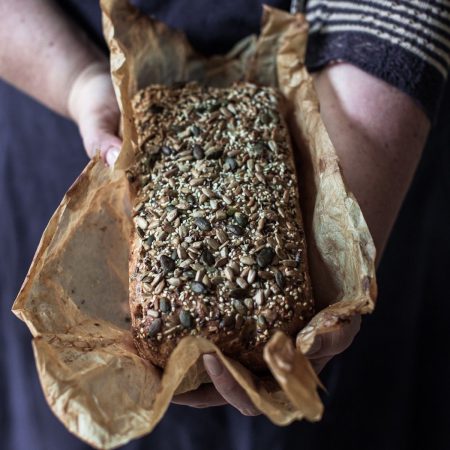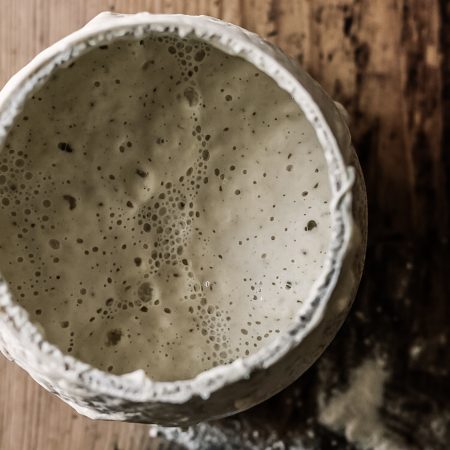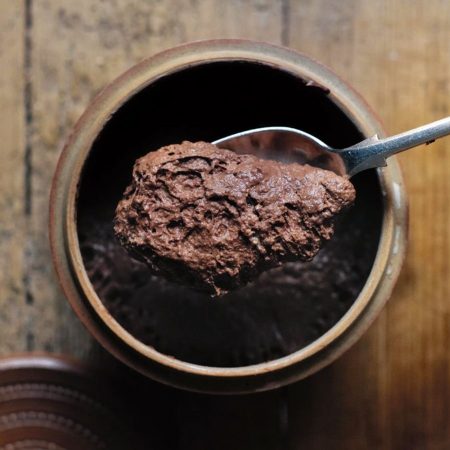 What are probiotics?
What are probiotics?
A probiotic is a live microorganism that provides measurable health benefits and improves the microbial balance in the intestine of the host. They are often called ‘good’ or ‘beneficial’ bacteria to reflect to reflect their role in promoting good health.
There are many different bacteria that fall into the category of probiotics. You will often find them in live food such as yoghurt, cultured butter, live vinegar, miso, kimchi, sauerkraut and pickles.
Probiotics and mental health
There are a significant number of studies showing that certain strains of bacteria and the foods that support them are effective at modulating mood. In fact, some are so effective, they could be favourably compared to modern pharmaceutical drugs.
One of the leading figures in researching the role of the gut microbiome and probiotics in mental health is John Cryan, a neuroscientist at University College Cork. He has co-authored a book called The Psychobiotic Revolution which explores the links between gut health and mental health.
Psychobiotics is a term coined by Cryan and psychiatrist Ted Dinan to describe a novel class of probiotics that have potential health benefits through their influence on the gut-brain axis. These are especially interesting because they suggest a route to treating some psychiatric diseases through diet, which is the approach to nourishment that is encompassed in nutritional psychiatry. This research is still in the early stages, but preliminary studies have shown a lot of promise and have illustrated some positive effect on mood via the gut-brain axis.
One important thing about these bacteria that have been studied is that they’re strain specific. Now this doesn’t mean to say that other strains aren’t beneficial, it just means that studies haven’t yet been completed on them, so we are unable to generalize the findings. Some strains though have been well researched and are already available as products in the supermarket. Food companies are beginning to understand the health benefits and are using these strains in our everyday foods. Foods such as yoghurts, probiotic drinks and kefir are popular examples and can all be easily incorporated into your diet.
As research pushes our knowledge further, we are discovering more about the role of psychobiotics in modulating mood and mental health. Some have been extensively studied in psychiatric settings, predominantly with people suffering from IBS. There is a correlation between reducing the symptoms of IBS and using probiotics (*insert link – Vanessa). Often patients reported positive effects when they were treated with certain microbes, including Bifidobacterium infantis. Scientists are discovering that some of the symptoms of depression and also of the chronic fatigue syndromes might be alleviated by the anti-inflammatory actions of some of these psychobiotics.
Symbiotic eating
Probiotics are what I call ‘part-timers’… they have a transient effect in the body. I think this is important to remember, because you only get the health benefits while they are included in your diet. Once you stop eating probiotics, the beneficial effects can fade away. This is one of the reasons we encourage our bakers to incorporate probiotics into their daily routine. Once you start to do this, it becomes a natural way to eat.
Something that I think is especially interesting is that many of the same families of probiotics are found in the sourdough process in the form of the lactic acid bacteria. These lactic acid bacteria do the work of transforming the structure of the flour in the dough, making it more nutritious and more digestible. The seven core principles we work to here at the sourdough school, recognise this and we promote the idea of symbiotic eating… combining probiotics alongside prebiotics to create recipes that are optimised for the highest level of nutrition in order to nourish the gut microbiome. Our recipes include, wherever possible, a live ingredient. And if we don’t incorporate a probiotic into the recipe itself, then we have a serving suggestion to encourage you to eat a live food with your bake. We encourage everyone to eat a wide diversity of foods and include probiotics in their diet through enjoying home baked breads with things like cultured butter, cultured cream, kimchi and sauerkraut. This way of eating can naturally support optimal gut health to maintain health and wellbeing.
The best way to incorporate specific strains in your diet is to buy the ingredients from a supermarket, and make your sauerkraut, kimchi or kefir using these. It is very hard to say how successful home inoculation will be, but if you give probiotic bacteria the right substrate and the conditions it thrives in, you can expect to have some success within home fermenting. In terms of health and safety when using and making your own probiotic recipes my advice is to sterilise everything correctly, using either heat or a sterilising solution. Trust your senses, if something looks or smells bad or if you have any doubt whatsoever over whether it’s ok, then discard it. And be patient – give anything that you’re fermenting a little bit of time and warmth to establish itself.
The future of probiotics and mental health
The field of probiotics and psychobiotics is relatively young. I want to be absolutely clear that we don’t yet know what all these beneficial bacteria do, and we don’t necessarily know that they all benefit us. The research into probiotics is ongoing. When people hear me talk about bacteria they often think of pathogenic bacteria. But less than 5% of bacteria are pathogenic. The other 95% of them are either beneficial or, at worst, neutral. There is much promise in this work and its application to gut health and mental wellbeing.
Learn more about probiotics, the gut microbiome and mental health from Vanessa’s webinar with Dr Alex Davidson.




Leave a Reply